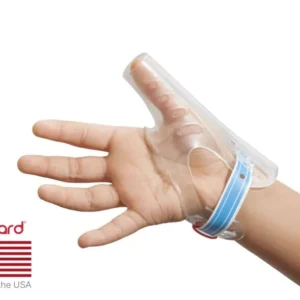Thumb and finger-sucking is a hot topic within the parenting community. While some experts argue that it’s a response to emotional distress, others see it as a harmless habit. The many debates surrounding this habit lead to various myths parents often believe.
However, parents must be well-informed to offer children the support they need throughout development. Read on to learn about common finger-sucking myths parents should ignore.
Myth 1: Emotional Problems Always Cause It
Sometimes, children begin sucking their fingers in response to distress, such as separation anxiety. However, this isn’t the case for allkids. Finger and thumb-sucking is a natural behavior that sometimes begins before birth. Babies naturally have a sucking reflex, and many find that nonnutritive sucking, such as on their fingers or thumb, provides comfort and helps them relax.
Outside of discomfort, some of the common reasons a child may suck their thumb are fatigue, hunger, and boredom. Understanding the impetus behind this habit is important, because to stop your child from sucking their fingers, you have to know why they do it.
Myth 2: Thumb-Sucking is Worse Than Using Pacifiers
Another common finger-sucking myth parents should ignore is that it’s worse than a pacifier. The reality is that both have the potential to cause dental and jaw development issues if they continue into early childhood.
Sucking on a finger or pacifier requires the same motion and thus puts the same amount of pressure on a child’s mouth and teeth, which can lead to problems such as misalignment or an overbite. Instead of arguing about which habit is “better,” parents should focus on healthy alternatives to both.
Myth 3: All Kids Stop on Their Own
A lot of kids stop sucking their thumbs around preschool age because they engage with peers and may notice other kids don’t do that anymore. This leads to children naturally outgrowing the habit. Likewise, some kids learn coping skills such as coloring, reading, or doing other activities that keep their hands occupied so they don’t rely on sucking their thumb as much.
However, not all children are the same, and while some can stop finger-sucking independently, others need help. Sucking their thumb can become an addictive habit due to the release of feel-good hormones like dopamine, making it difficult for children to stop, even if they want to.
Myth 4: You Must End It Immediately
If your child is around the age of 4 to 5 years old and still sucking their thumb, you may assume that you should force them to stop immediately. The problem is that quitting cold turkey can cause emotional distress, especially for a child who depends on thumb-sucking to feel calm.
Instead, work with your child, using positive reinforcement to gently guide them away from the habit. Many parents use devices such as TGuards’ FDA-approved finger-sucking gloves to help their children gradually lessen the amount of time they spend sucking their thumbs.
The Truth: Habit Breaking Takes Time
Finger-sucking is no different than any other habit, and changing behaviors takes time. Experiment with various ways to stop finger-sucking. Above all else, remain patient and consistent with your child. While some children may respond quickly to positive reinforcement, others may take longer to adjust. What’s most important is fostering a supportive environment that encourages healthy habits.






